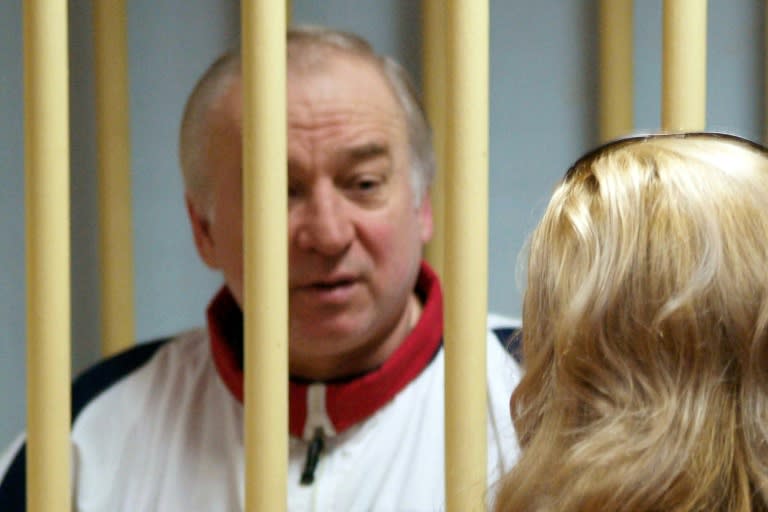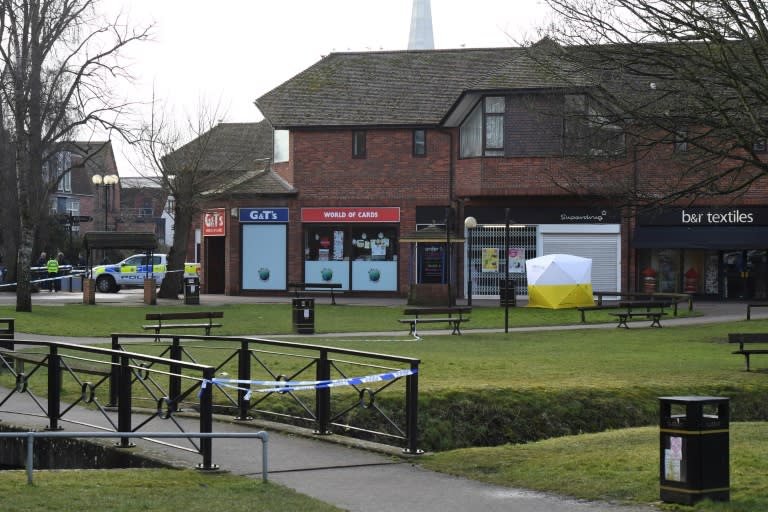UK, Russia spar over Russian ex-spy's suspected poisoning
Britain warned Tuesday it would respond "robustly" if it emerged that a government was behind the suspected poisoning of a former Russian double agent found unconscious on a street bench in England, prompting a swift rebuke from Russia. Foreign Secretary Boris Johnson said Britain would "take whatever measures we deem necessary" and even appeared to suggest England could pull out of the 2018 football World Cup in Russia if it was shown to be behind the incident. A source close to Johnson later clarified he was referring to British "officials and dignitaries" attending the summer tournament. Sergei Skripal was a former colonel in Russian military intelligence who spied for Britain and moved there in a spy swap in 2010. He was found outside a shopping centre along with his daughter Yulia in the southwestern English city of Salisbury on Sunday. The pair were treated for "suspected exposure to an unknown substance" and are in a critical condition in a local hospital, police said. Johnson told the House of Commons that he was "not now pointing fingers" but noted "echoes" of the 2006 poisoning in London of Kremlin critic Alexander Litvinenko. A British inquiry ruled that attack was likely ordered by Russian President Vladimir Putin. Johnson said: "Should evidence emerge that implies state responsibility, then Her Majesty's government will respond appropriately and robustly." He added: "no attempt to take innocent life on UK soil will go either unsanctioned or unpunished." The foreign secretary then went on to refer indirectly to suspected Russian involvement. If that is confirmed, he said, "it will be difficult to see how UK representation at the World Cup can go ahead." Russia promptly hit back at the comments. Foreign ministry spokeswoman Maria Zakharova told Ekho Moskvy radio station they were words of "savagery", while the Russian Embassy in London accused Johnson of threatening retribution "instead of a proper official clarification on the issue". "The Foreign Secretary spoke in such a manner as if the investigation was already over and Russia was found responsible for what had happened in Salisbury," the embassy said in a statement. "Looks like the script of yet another anti-Russian campaign has been already written." - Government briefed - Britain's National Security Council discussed the issue at a meeting Tuesday where Prime Minister Theresa May, Johnson and senior ministers were updated on the ongoing investigation, according to a government spokesman. The incident has not been linked to terror, but Britain's national counter-terrorism unit has taken control of the case, saying it has the specialist expertise to deal with such "unusual circumstances". A Ministry of Defence research facility is analysing the "unknown substance" suspected of causing the pair to fall ill, according to multiple British media outlets. Meanwhile a cordon remains in place where Skripal, 66, and his 33-year-old daughter were found. A restaurant on a street nearby, "Zizzi", was closed Monday while a pub was also cordoned off Tuesday "as a precaution", local police said. It earlier revealed that a number of emergency services personnel required medical assessment after the incident, but stressed there was no risk to public health. - UK-Russia tensions - The murder of Litvinenko, an ex-Russian spy killed by radioactive polonium in his tea, led to a major diplomatic split between London and Moscow. A British inquiry ruled in 2016 that Putin "probably approved" the killing and identified two Russians as the prime suspects. Many British lawmakers warned Tuesday of the current threat posed by Moscow, citing its actions in Ukraine, cyber-attacks and the Syrian conflict. The chairman of the House of Commons foreign affairs committee, Tom Tugendhat, said the early evidence pointed to Russia's involvement in the Salisbury incident. "It is too early to say whether it is certain or not, but it certainly bears all the hallmarks of a Russian attack," he said. Putin's spokesman Dmitry Peskov said earlier Tuesday that Russia had no information about the cause of the "tragic situation". He said London had not made any requests for assistance in the investigation, but added: "Moscow is always ready for cooperation." - 'Deja vu' - Skripal was sentenced to 13 years in jail in Russia in 2006 for betraying Russian intelligence agents to Britain's MI6 secret service. But he was pardoned before being flown to Britain as part of a high-profile spy swap involving Russia and the United States in 2010. Igor Sutyagin, who also went to Britain in the swap, said he could not understand why Skripal would be targeted. "He confessed, was amnestied and had served part of his sentence," he told Radio Free Europe. However, Litvinenko's widow, Marina, told The Times newspaper that the case brought on a "kind of deja vu".




